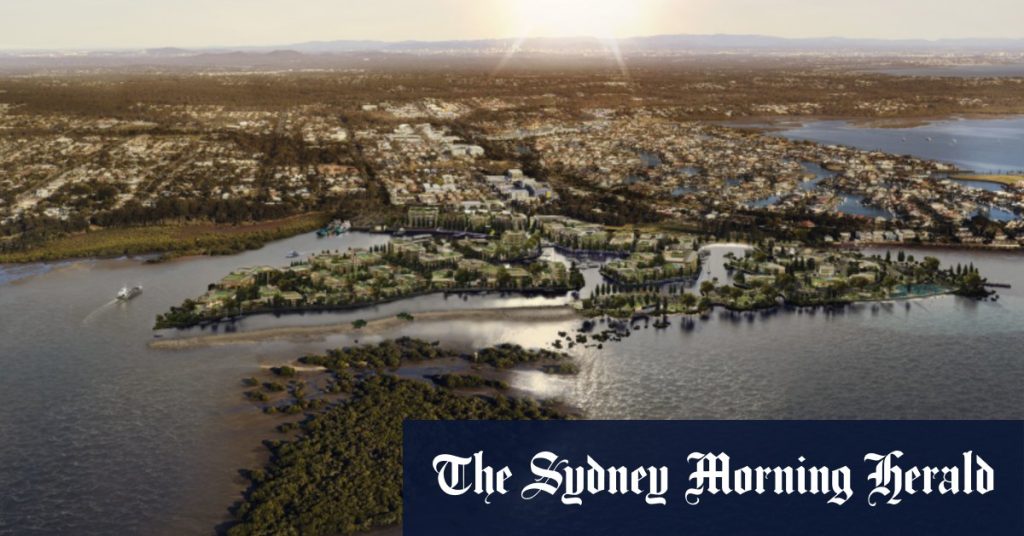Environment Minister Tanya Plibersek has made a significant decision to reject the massive Toondah Harbour development near Brisbane, a project that was originally estimated to cost $1.4 billion to complete. The Walker Group, developers of the project, have been given 10 business days to respond to her proposed rejection. The proposed development would have involved building thousands of apartments, a marina, and a retail centre over internationally recognised wetlands along the Cleveland foreshore. Plibersek cited the importance of protecting Moreton Bay from the unacceptable impacts of the development, particularly on rare and unique wetlands that are vital for preventing the extinction of animals like the eastern curlew and loggerhead turtle.
The Walker Group’s latest images for the development show Cassim Island, which is used as a roosting site by migratory birds, in the foreground. The company has been pushing for this development for over a decade, despite opposition from environmental groups and concerns about the potential harm it could cause to the delicate ecosystem. Plibersek’s proposed decision to reject the project has been met with praise from environmental campaigners, including the Australian Conservation Foundation. They see it as a landmark decision that will protect both nature and people from the destructive impacts of the proposed development.
The wetlands along the Cleveland foreshore are considered to be rare, unique, and important for preserving biodiversity in the area. By preventing the development from moving forward, Plibersek aims to safeguard these valuable ecosystems and the wildlife that depends on them for survival. The eastern curlew and loggerhead turtle are just two of the species that could be at risk if the Toondah Harbour development were allowed to proceed. The decision to reject the project reflects a commitment to conservation and environmental protection that is crucial for maintaining the health and integrity of Moreton Bay and its surrounding areas.
The Walker Group has yet to provide a comment on Plibersek’s proposed rejection of the Toondah Harbour development. It remains to be seen how they will respond to this decision and whether they will seek alternative options for the site in light of the environmental concerns that have been raised. The fate of the project is now in limbo as stakeholders await the developers’ next steps. The rejection of the project represents a victory for conservationists and environmental advocates who have been fighting to protect the wetlands and wildlife of Moreton Bay from the potentially harmful effects of large-scale development.
Overall, Plibersek’s decision to reject the Toondah Harbour development is a significant win for environmental protection and conservation efforts in the Brisbane area. By prioritizing the preservation of rare and important wetlands and the wildlife that depends on them, she has taken a stand against unsustainable development practices that threaten fragile ecosystems. The proposed rejection of the project sends a clear message that the protection of nature and biodiversity must be a priority in any development plans, and that the government is committed to upholding environmental values in decision-making processes. The outcome of this landmark decision will have far-reaching implications for the future of development and conservation in the region, setting a precedent for how environmental considerations should be taken into account in similar projects.


